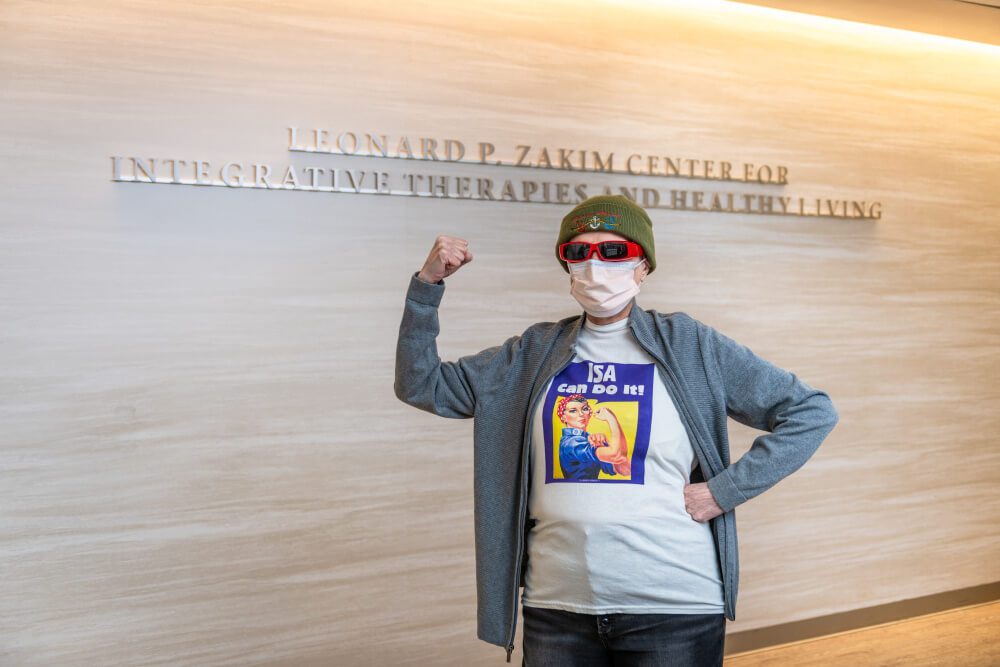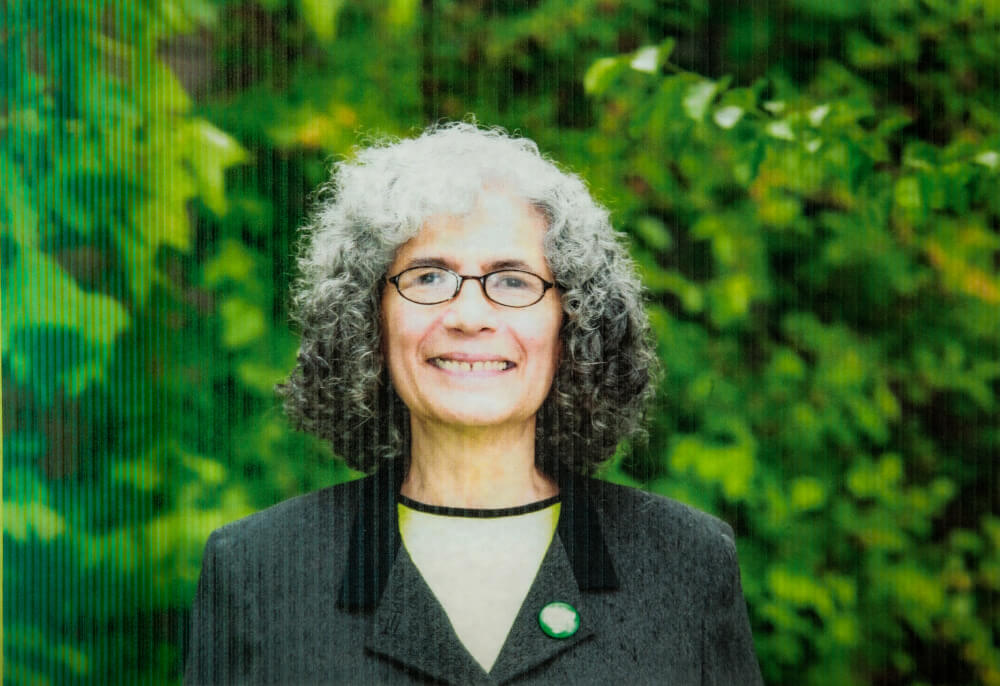In March 2020, Isa Infante, PhD, JD, who was 78 at the time, began to itch all over her body. It was a bizarre symptom for Infante, who had always been very active and adhered to a strict macrobiotic diet.
“Every inch of my body itched,” Infante remembers. “From the top of my head to the soles of my feet.”
Cancer was not on her mind when she visited her community health provider in Lynn, Massachusetts. Still, she thought something wasn’t right, but her physician was unable to identify the source of the itching.
Infante began to see specialists. She describes seeing a “gauntlet of physicians” who had similar difficulties understanding the source of her itching. Even after imaging scans, the answer was unclear.
“Anybody who had a suggestion, I tried it,” she says. Fortunately, Infante found Shinjita Das, MD, a dermatologist at Massachusetts General Hospital who became her guide through the maze of the health care system and led her to Thomas Kupper, MD, a cutaneous oncologist and Chairman of Dana-Farber Cancer Institute’s Cutaneous (Skin) Cancer Treatment Center, in January 2022. He was finally able to provide her with answers.

Answers and a plan
Kupper was able to diagnose Infante with a cutaneous T-cell lymphoma called Sézary syndrome. A rare subset of an already-rare type of lymphoma, Sézary syndrome is difficult to diagnose since it can often present as numerous other skin disorders. In patients with the syndrome, cancerous T cells in the blood affect the skin and can cause a rash that may cover the whole body.
Through molecular testing, the team at Dana-Farber Brigham Cancer Center identified a gene in Infante’s cancerous T-cells, CCR4, which could be targeted by immunotherapy. She began treatment immediately with the immunotherapy drug called mogamulizumab, which binds selectively to CCR4 and blocks its activity, effectively stopping those cells from reproducing and creating more cancerous blood cells.
Infante’s symptoms rapidly disappeared, and in April, her care team informed her that she was in complete remission. After remission, the itching has slowly disappeared: Today, she is practically itch-free.
“Throughout this process, it has meant so much to me that my physicians respect and listen to me,” she says.
For her part, Infante, who has inhabited many roles in her life including that of a lawyer, Yale graduate, Tennessee gubernatorial candidate, professor of political science and dean at SUNY, international actress and playwright, band leader, scuba diver, and martial artist, is not letting any setbacks deter her from staying productive. Infante writes whenever she can. She is working on a memoir and has co-written a comedic play based on her run for political office. She has also joined the Cutaneous Lymphoma Foundation in the hope that she will find a community there to help support her through shared experience.

“When you tell people, ‘I itch,’ they visibly move away from you,” she says about the social toll of her symptoms. “It’s ridiculous because I’m not contagious. But hopefully those who share my experience will understand.”
With her cancer in remission, Infante also continues to educate. Most recently, she spoke to an auditorium full of Harvard Medical School freshmen about her journey with Sézary syndrome.
“The relationship between patient and physician is a two-way street,” she told the students. “I have knowledge of my body and you, the physician, have medical knowledge. It’s so important to work together with your patients.”

What an amazing and inspiring post thank God for immunotherapy it saves lives. My husband has melanoma and immunotherapy is saving his life.
Thank God for immunotherapy, a resolution and great team. This is a great article on Isa and it is great to spread awareness.
I have Sezary too.
So grateful for immunotherapy! It has been a game changer in my battle with breast cancer!